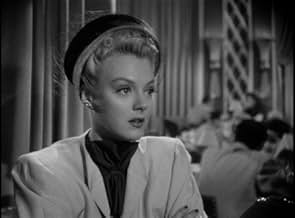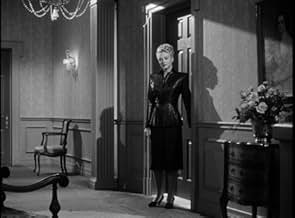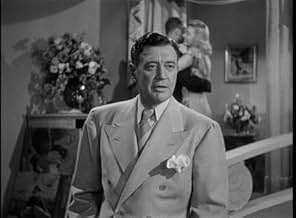Lesser entry in the offbeat Whistler series. The story is worthy enough. Richard Dix plays an "artist' and kept man who takes a fancy to a shapely blonde model while his wealthy wife is stricken with a serious heart problem. The intrigue goes on from there. The problem is that the screenplay is filmed in straightforward fashion, with none of the moody atmospherics that distinguish other entries. The result is an entertaining 60 minutes, but minus the usual visual panache. Apparently, journeyman director George Sherman wasn't advised of the proper lighting or feel of the series. Either that or the producers were seeking a stylistic departure.
Nonetheless, the story keeps us watching. As usual we can't be sure how events will turn out since Dix's character is as morally compromised as in the other entries. Unlike other Hollywood films of that era, there is no one to root for as the plot unfolds. Thus, it's the story itself that holds our interest, and not the more predictable question of how a hero will triumph. Fortunately, the ending comes up with the usual fine touch of irony that fans expect.
There's an expertly shaded performance by Mary Currier as Dix's star-crossed wife. Watch the subtlety of her expressions as she learns about her wayward husband. The series itself did not depend on subtle acting-- and certainly Dix doesn't manage the Lothario role very well. Nonetheless, Currier delivers an A-grade performance. (In passing-- I expected the screenplay to develop the scheming relationship between blonde model Kay and her effete boyfriend Jim more fully than it did. That could have set up an interesting dynamic of those schemers competing against another schemer, Dix.) Anyway, stylish or not, this remains a very watchable hour of frustrated passion and the hand of fate.
































